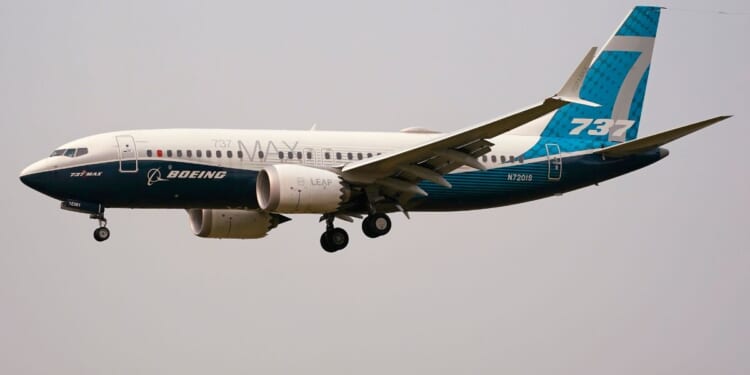Boeing may be flying into more trouble, as another employee has come forward with claims of safety issues at the company.
Sam Salehpour, an engineer who worked on Boeing’s 787 Dreamliner, told The New York Times that the way the airplane manufacturer connected some sections of the plane’s fuselage together is unsafe and could lead to planes breaking apart midair over time.
The Times said Salehpour had worked at Boeing for over 10 years; his lawyers described him online as “a Quality Engineer with over 40 years of experience.”
A Tuesday post to X from the account of the D.C.-based Katz Banks Kumin law firm confirmed that Salehpour had become one of its clients.
“Debra Katz and Lisa Banks are representing Sam Salehpour, a Boeing whistleblower who reported serious concerns about Boeing’s manufacturing and quality control processes with its 787 and 777 planes,” the post said.
#BREAKING: Debra Katz and Lisa Banks are representing Sam Salehpour, a Boeing whistleblower who reported serious concerns about Boeing’s manufacturing and quality control processes with its 787 and 777 planes. pic.twitter.com/InwAjpZc9V
— Katz Banks Kumin LLP (@katzbanks) April 9, 2024
The firm has a history of representing people with claims like Salehpour’s and lists nearly two dozen “whistleblower successes” on its website.
Salehpour told the Times that the basic issue is that the pieces of the fuselage are manufactured at different facilities and aren’t always the same shape where they are supposed to be fitted togther.
Do you trust Boeing?
That was a change from the company’s previous process. The company acknowledged those changes had been implemented, but denied that they were any sort of safety issue.
The new manufacturing process has had “no impact on durability or safe longevity of the airframe,” company spokesman Paul Lewis told the Times.
A later statement from the company cited by the Times said that “these claims about the structural integrity of the 787 are inaccurate and do not represent the comprehensive work Boeing has done to ensure the quality and long-term safety of the aircraft.”
Boeing also said it was studying the entire aircraft for potential long-term safety issues, but claimed that even if such issues were identified, they would not represent an issue “for many years to come, if ever.”
In its statement on X, the engineer’s lawyers said he had brought the structural integrity issues to the attention of Boeing’s management, but was ignored because of the manufacturer’s focus on profits rather than safety.
They also claimed that the Federal Aviation Administration, which is supposed to oversee airline safety, has been “too deferential to industry.”
“Endemic at Boeing is a culture where whistleblowers are retaliated against and sidelined,” the statement said. “Despite repeated efforts to force our client to remain silent, he has continued to raise issues both internally and with the F.A.A.
“It remains to be seen whether the F.A.A. has the necessary will and resources to provide meaningful oversight over Boeing and the many different safety issues our client has raised,” it added.


